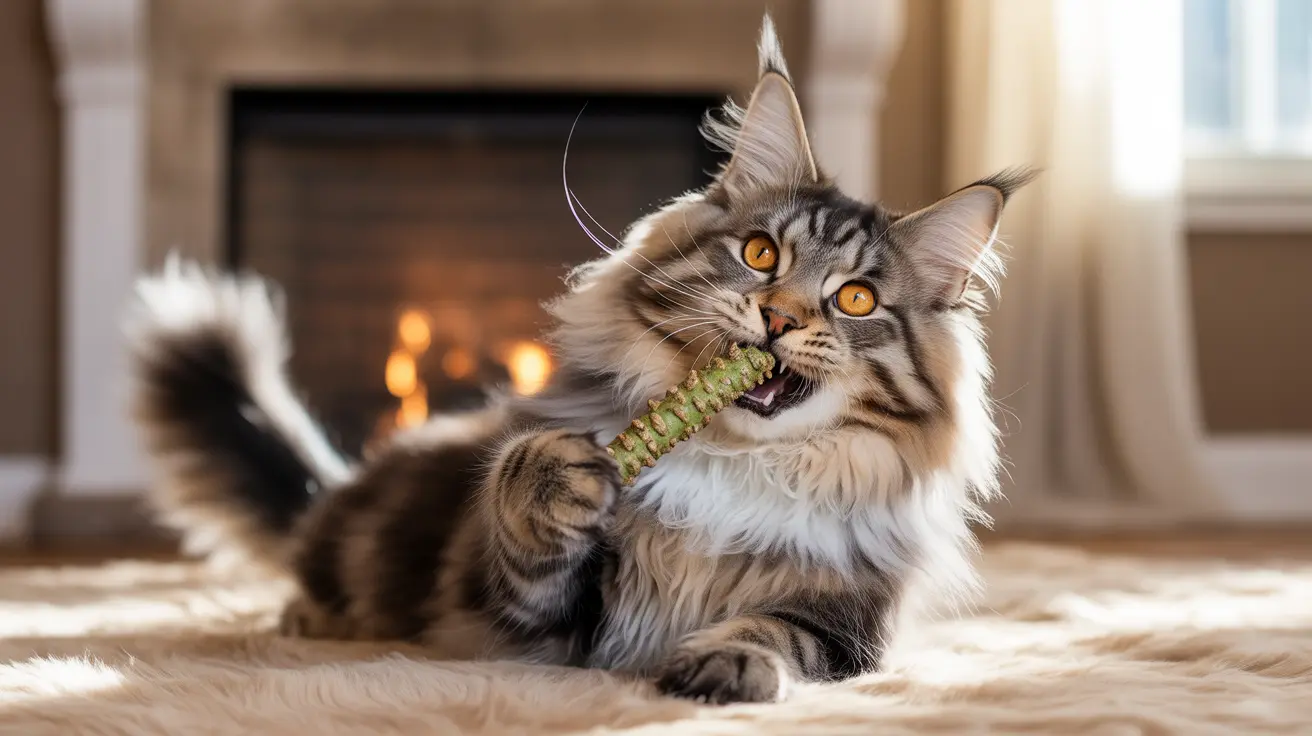Introduction
If you've ever wondered "are catnip sticks safe for cats," you're not alone. These popular feline enrichment toys have become increasingly common in pet households, but many cat owners have concerns about their safety and proper usage. In this comprehensive guide, we'll explore everything you need to know about catnip sticks, from their benefits to potential risks and best practices for use.
Understanding the safety aspects of catnip sticks is crucial for responsible pet ownership. While these natural toys can provide excellent enrichment and even dental benefits for your feline friend, knowing how to use them properly ensures your cat can enjoy them safely.
What Are Catnip Sticks?
Catnip sticks are natural toys made from the dried stems of the Nepeta cataria plant, commonly known as catnip. These sticks contain nepetalactone, the active compound that creates the characteristic "catnip effect" in cats. Many manufacturers also market these sticks as dental chews, as the texture can help remove plaque and tartar while cats play.
Safety Benefits and Considerations
The good news is that catnip sticks are generally safe for cats when used appropriately. They're non-toxic and can provide numerous benefits, including stress relief, mental stimulation, and dental health support. However, there are some important safety considerations to keep in mind.
Potential Risks to Watch For
- Choking hazards if sticks splinter or break
- Digestive upset if large amounts are ingested
- Potential overexcitement in sensitive cats
- Risk of injury from sharp edges if sticks become damaged
Best Practices for Safe Use
- Always supervise play sessions
- Replace sticks when they become worn or splintered
- Limit usage to 1-2 times per week
- Store sticks in an airtight container
- Remove the stick if your cat becomes overexcited
Benefits of Catnip Sticks
- Promote dental health through natural chewing
- Provide mental stimulation and enrichment
- Help reduce stress and anxiety
- Encourage physical activity and play
- Support natural hunting and play behaviors
Alternatives and Options
For cats who don't respond to catnip (about one-third of cats), silvervine sticks can be an excellent alternative. These sticks, made from the Actinidia polygama plant, often elicit responses in cats who don't react to traditional catnip, with up to 75-80% of cats showing interest.
Frequently Asked Questions
Are catnip sticks safe for cats to chew and play with regularly?
Yes, catnip sticks are safe for regular use when given under supervision and in moderation. Most cats can safely enjoy catnip sticks 1-2 times per week without issues.
What are the risks of giving my cat catnip sticks, and how can I prevent choking or injury?
The main risks include choking on splintered pieces and digestive upset from overconsumption. Prevent these by supervising play sessions, removing damaged sticks, and limiting usage time.
How often can I safely give my cat catnip sticks without causing digestive upset?
Most cats can safely enjoy catnip sticks 1-2 times per week. Monitor your cat's reaction and adjust frequency based on their individual response.
Are catnip sticks effective for cats with dental problems or senior cats?
While catnip sticks can help with dental health, cats with existing dental problems or seniors might find them too hard. Consult your veterinarian for appropriate alternatives.
What should I do if my cat does not respond to catnip sticks—are silvervine sticks a safe alternative?
Yes, silvervine sticks are a safe alternative that often works for cats who don't respond to catnip. They produce similar effects and are equally safe when used properly.
Conclusion
Catnip sticks can be a safe and enriching toy for your feline companion when used responsibly. By following proper safety guidelines and monitoring your cat's interaction with these toys, you can provide them with a fun and beneficial form of entertainment. Remember to always supervise play sessions and consult with your veterinarian if you have specific concerns about your cat's use of catnip sticks.






